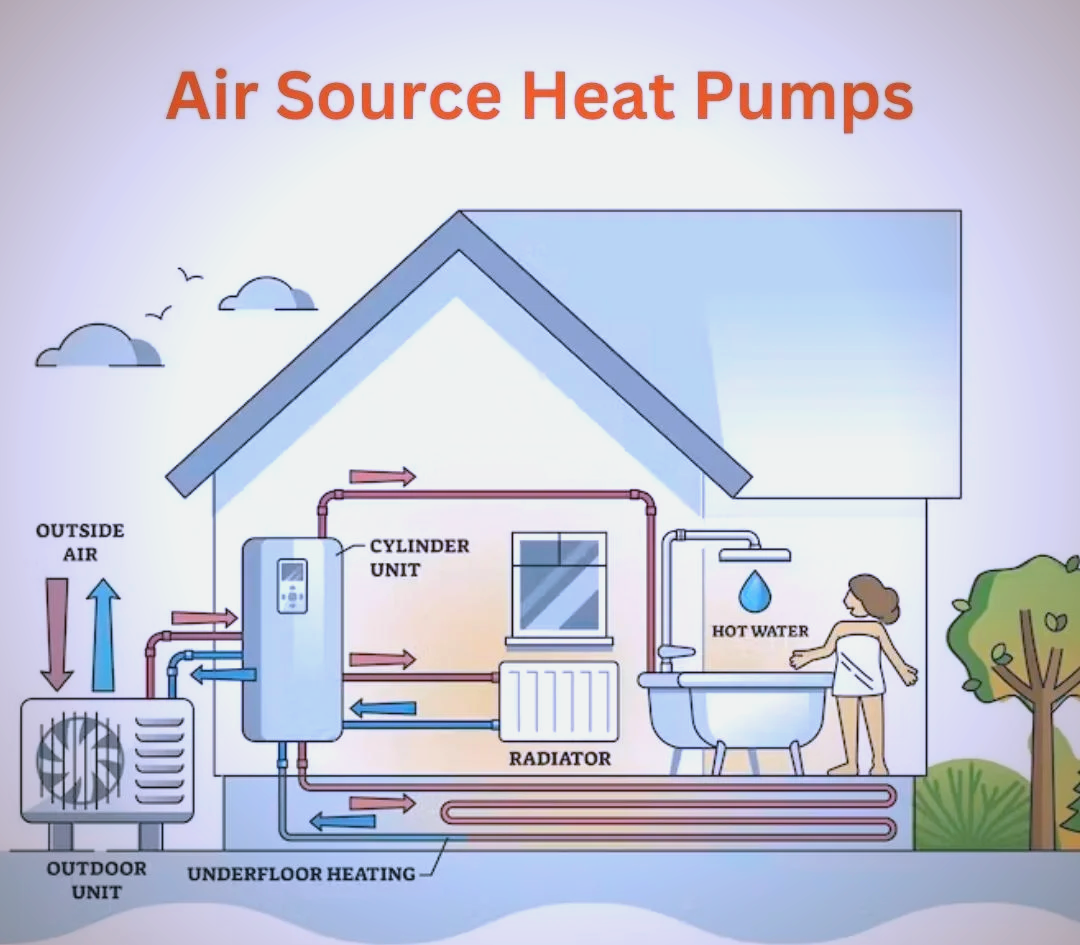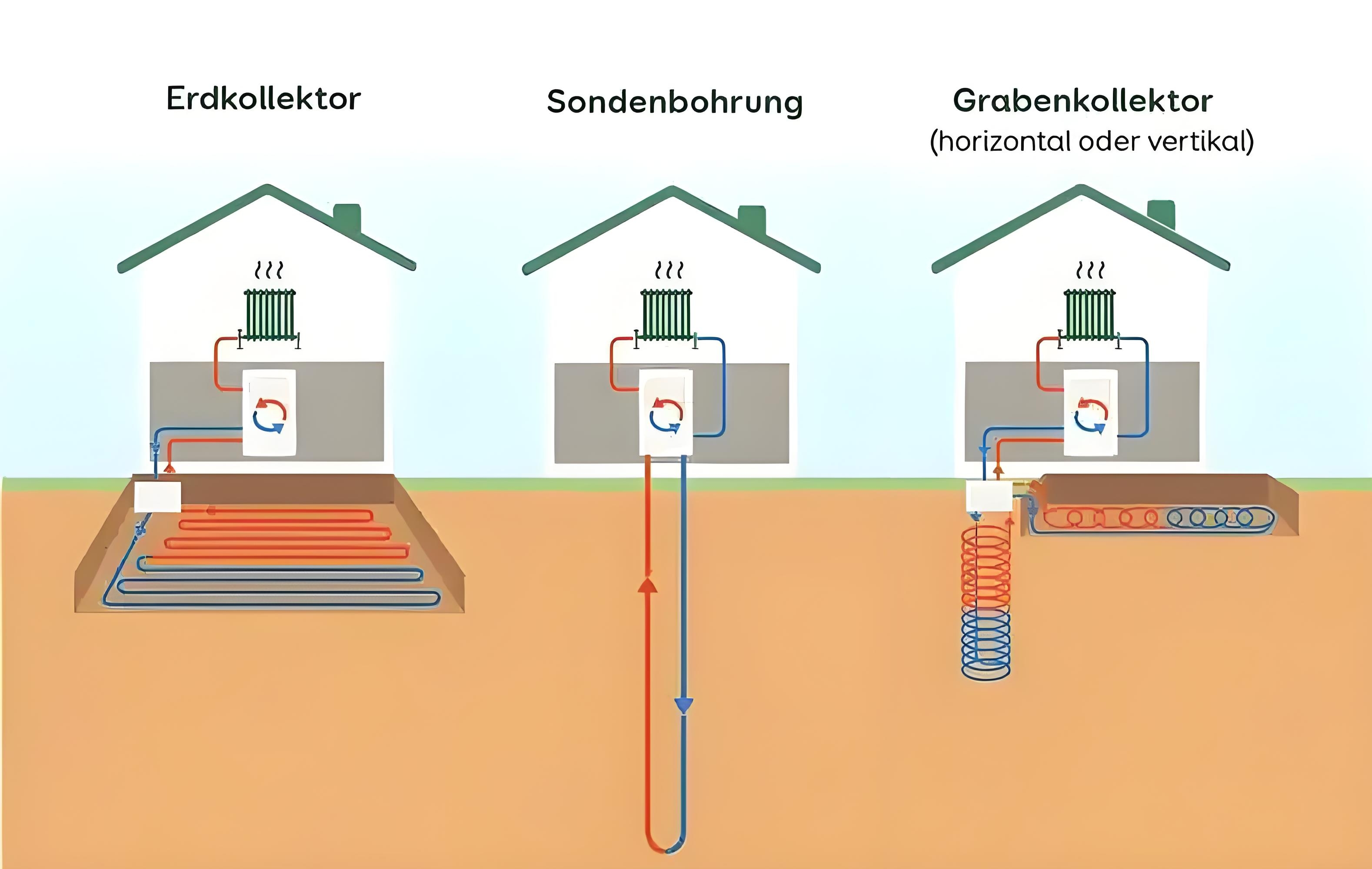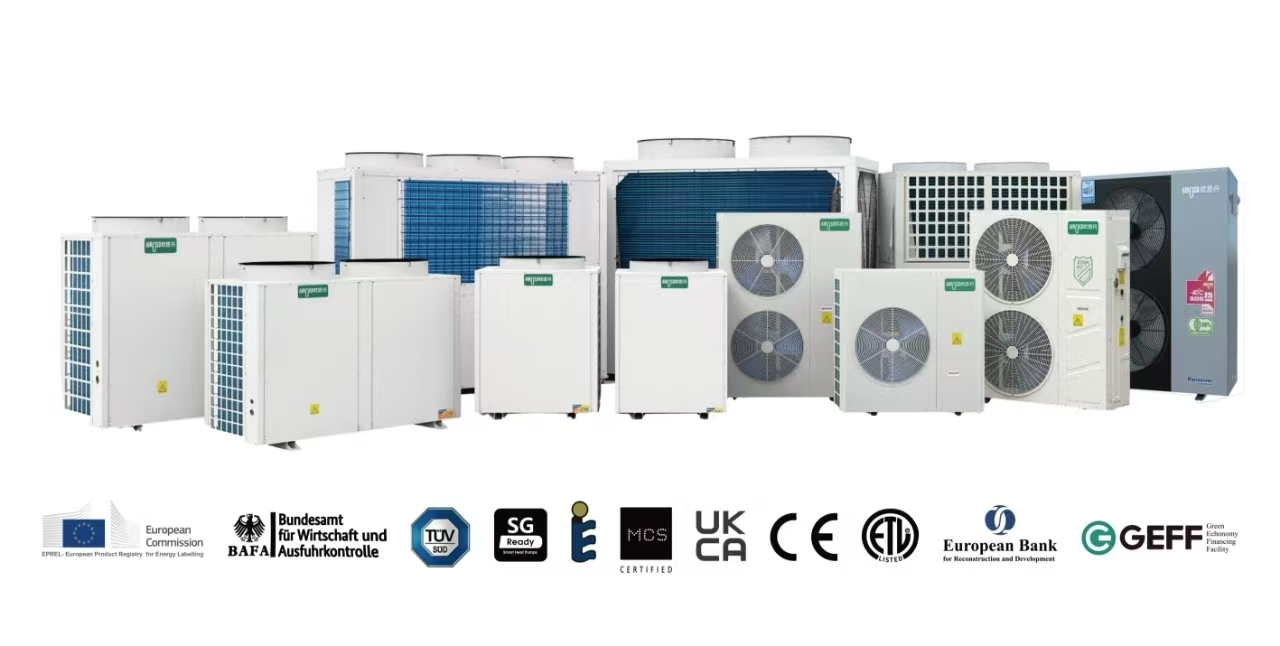As the global demand for energy-efficient and environmentally friendly solutions continues to grow, heat pump technology has gained significant attention. Among various types of heat pumps, the air source heat pump and the water source heat pump stand out as two of the most popular systems for residential, commercial, and industrial applications. Both systems are used for cooling heating and hot water, but they operate differently and are suitable for different scenarios. This article explores their key differences, benefits, and applications.
1. Basic Principles
An air source heat pump extracts heat from the outside air and transfers it indoors for heating or removes indoor heat to cool the building. In contrast, a water source heat pump uses a water loop—such as a ground well, lake, or underground loop—as the thermal exchange medium.
Both systems rely on the same core principle: they move heat rather than generate it, making them significantly more energy-efficient than conventional systems. However, the medium they use for heat exchange—air or water—greatly affects their performance, efficiency, and installation requirements.
2. Air Source Heat Pump Overview
The air source heat pump is widely used because it is easy to install and requires minimal infrastructure. It is ideal for areas with mild to moderate climates. A subtype known as the air to air heat pump delivers heating or cooling directly to indoor spaces via ductwork or indoor air units.
air to air heat pump systems are compact, efficient, and cost-effective, especially for residential buildings. However, they may become less efficient in extremely cold climates, as the air contains less heat energy at low temperatures.
Additionally, modern air to air heat pump units can handle cooling heating and hot water production in a single integrated system, making them a practical all-in-one solution for year-round comfort.

3. Water Source Heat Pump Overview
The water source heat pump, on the other hand, offers higher efficiency because water is a more stable and consistent heat source compared to air. One of the most advanced types is the water to water geothermal heat pump, which uses geothermal energy from underground water sources or loops.
Water to water geothermal heat pump systems provide superior energy savings and stable performance regardless of outdoor air temperatures. These systems are ideal for large commercial buildings, green-certified homes, or projects with access to wells, ponds, or closed-loop ground systems.
Unlike air source heat pump systems, water source heat pump systems often require more complex installation and upfront investment. However, their long-term savings and durability can outweigh the initial costs.

4. Cooling Heating and Hot Water Capabilities
Both air source heat pump and water source heat pump systems are capable of delivering cooling heating and hot water, offering complete climate solutions. The versatility of these systems has made them increasingly popular in both retrofit and new construction markets.
A water to water geothermal heat pump can connect to radiant floor systems, fan coil units, and even swimming pool heaters, while an air to air heat pump is commonly used with ducted or ductless air delivery methods.
Today’s integrated designs enable homeowners and businesses to use one system for all their cooling heating and hot water needs, improving energy efficiency and simplifying maintenance.
5. Key Differences and Comparison Table
| Feature | Air Source Heat Pump | Water Source Heat Pump |
|---|---|---|
| Heat Source | Ambient Air | Groundwater or closed water loop |
| Installation | Easier, less invasive | Requires drilling or water access |
| Efficiency in Cold Climates | May decrease | Stable and high efficiency |
| Initial Cost | Lower | Higher (due to drilling/loop system) |
| Longevity | Moderate | Longer lifespan |
| Application Flexibility | Residential, small commercial | Larger buildings, eco-homes |
| Cooling, Heating and Hot Water | Yes | Yes |
6. Which One Should You Choose?
If you're in a region with mild winters and limited space or budget, an air source heat pump or air to air heat pump might be the best option. They are easier to install and cost-effective for homes or small businesses.
However, if you seek maximum energy efficiency, long-term savings, and have access to a water source or land for geothermal loops, then a water source heat pump, especially a water to water geothermal heat pump, is a superior choice.
Both types of heat pumps can handle cooling heating and hot water efficiently. The decision should be based on your climate, budget, land conditions, and energy goals.
7. Conclusion
The debate between air source heat pump and water source heat pump technology comes down to performance, location, and investment. With both capable of providing cooling heating and hot water, and available in designs such as the air to air heat pump or the water to water geothermal heat pump, there’s a solution for nearly every project.
By understanding the strengths and differences of these systems, you can make a more informed decision and move one step closer to a more sustainable and comfortable living or working environment.




